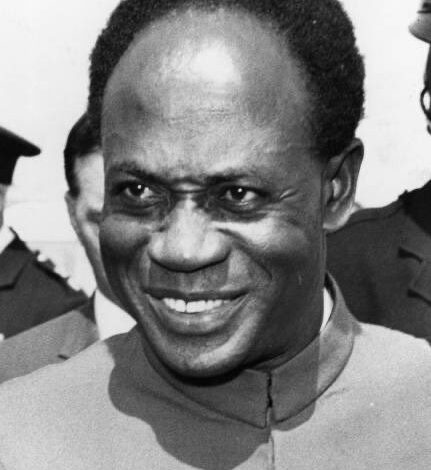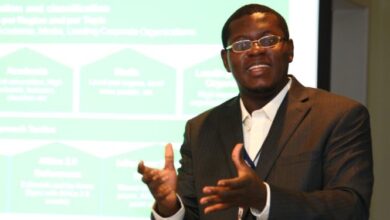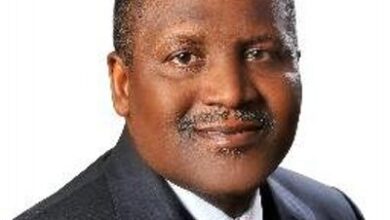Kwame Nkrumah: The Visionary Leader of Ghana’s Independence

Kwame Nkrumah, one of Africa’s most iconic leaders, played a pivotal role in the continent’s fight against colonialism and the quest for self-determination. Born on September 21, 1909, in Nkroful, a small village in the British-ruled Gold Coast (modern-day Ghana), Nkrumah rose from humble beginnings to become a symbol of African unity and progress. His life and legacy are defined by his unwavering commitment to Pan-Africanism, nationalism, and social justice.
Nkrumah’s early education laid the foundation for his revolutionary ideas. He attended Achimota College in Accra, where he trained as a teacher. However, it was his journey abroad that transformed him into a political thinker and activist. In 1935, Nkrumah traveled to the United States to pursue higher education at Lincoln University and the University of Pennsylvania. During his time in the U.S., he was deeply influenced by the works of African-American intellectuals such as W.E.B. Du Bois and Marcus Garvey, as well as the ideologies of socialism and Pan-Africanism. These influences shaped his belief that Africa could achieve liberation through unity and collective action.
After completing his studies, Nkrumah moved to London, where he became an active member of the Pan-African movement. He collaborated with other African leaders and thinkers, including Jomo Kenyatta of Kenya and George Padmore, to advocate for the decolonization of Africa. Nkrumah’s political philosophy centered on the idea that Africa’s liberation was essential for the continent’s social and economic development.
In 1947, Nkrumah returned to the Gold Coast to join the United Gold Coast Convention (UGCC), a political party seeking independence from British rule. However, his radical and action-oriented approach often clashed with the more conservative leadership of the UGCC. In 1949, Nkrumah broke away to form his own party, the Convention People’s Party (CPP). The CPP quickly gained massive support among ordinary Ghanaians due to its populist agenda and its slogan, “Self-Government Now!”
Nkrumah’s leadership and charisma propelled the independence movement forward. In 1951, the CPP won a decisive victory in the Gold Coast’s first general elections, and Nkrumah became the leader of government business, effectively the prime minister. Under his leadership, the Gold Coast negotiated its independence, and on March 6, 1957, Ghana became the first sub-Saharan African country to achieve independence from colonial rule. Nkrumah proudly declared, “The independence of Ghana is meaningless unless it is linked up with the total liberation of the African continent.”
As Ghana’s first prime minister and later its first president, Nkrumah embarked on an ambitious agenda to modernize the country. He prioritized industrialization, education, and infrastructure development, launching projects such as the Akosombo Dam to generate hydroelectric power. However, his focus extended beyond Ghana; Nkrumah became a leading advocate for Pan-Africanism. He envisioned a united Africa with a single government, arguing that political unity was the key to the continent’s economic and social progress. In 1963, he played a central role in founding the Organization of African Unity (OAU), the precursor to today’s African Union.
Despite his achievements, Nkrumah’s leadership faced significant challenges. His government became increasingly authoritarian, suppressing political opposition and limiting press freedom. His ambitious economic projects, while visionary, strained Ghana’s finances. In 1966, while Nkrumah was on a diplomatic mission to North Vietnam and China, his government was overthrown in a military coup. He spent the remainder of his life in exile, first in Guinea, where he was named honorary co-president, and later in Romania. Nkrumah died on April 27, 1972, in Bucharest.
Kwame Nkrumah’s legacy is complex but undeniably impactful. He remains a celebrated figure in Ghana and across Africa, remembered as a champion of independence and a visionary for African unity. His ideals continue to inspire movements for social justice and Pan-Africanism, reminding the world of the enduring power of collective action and the quest for freedom.




